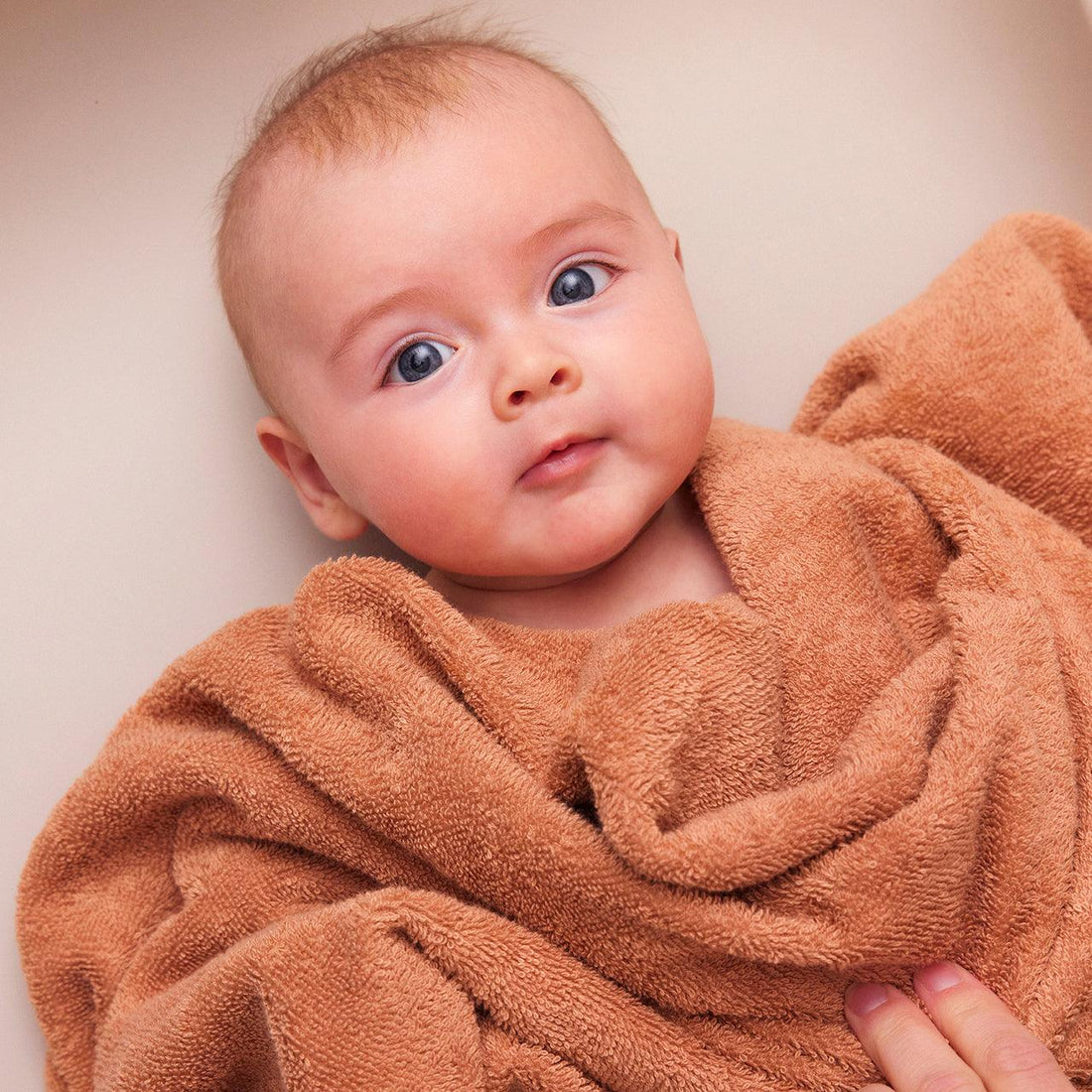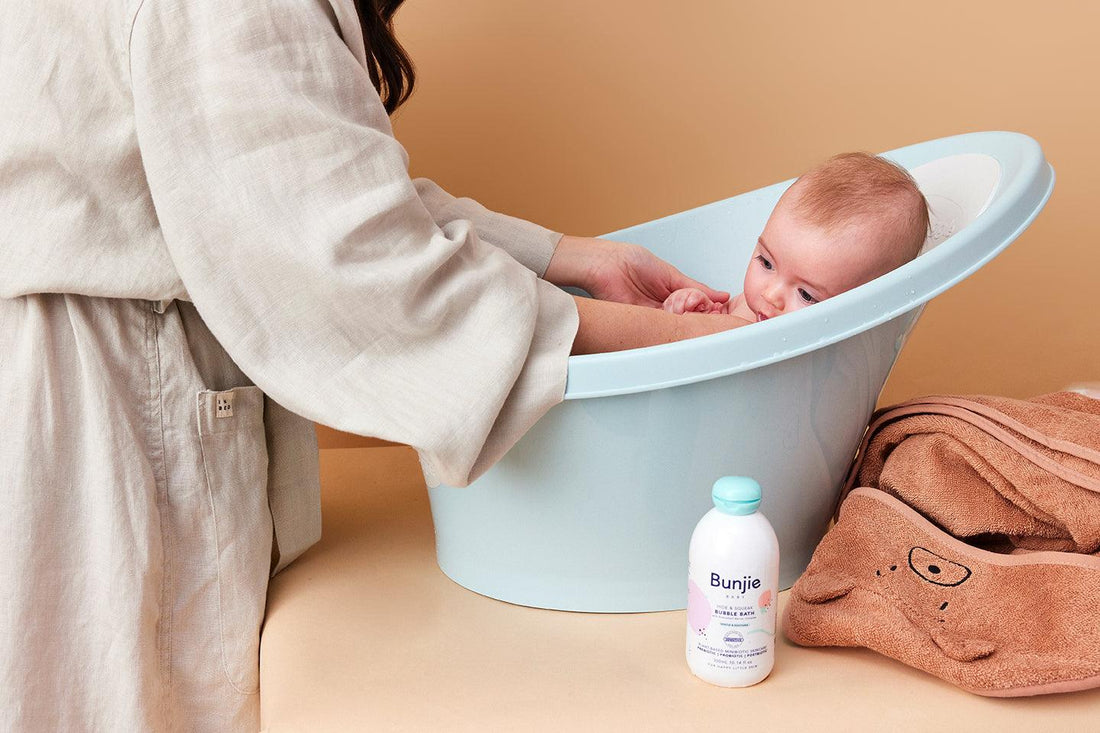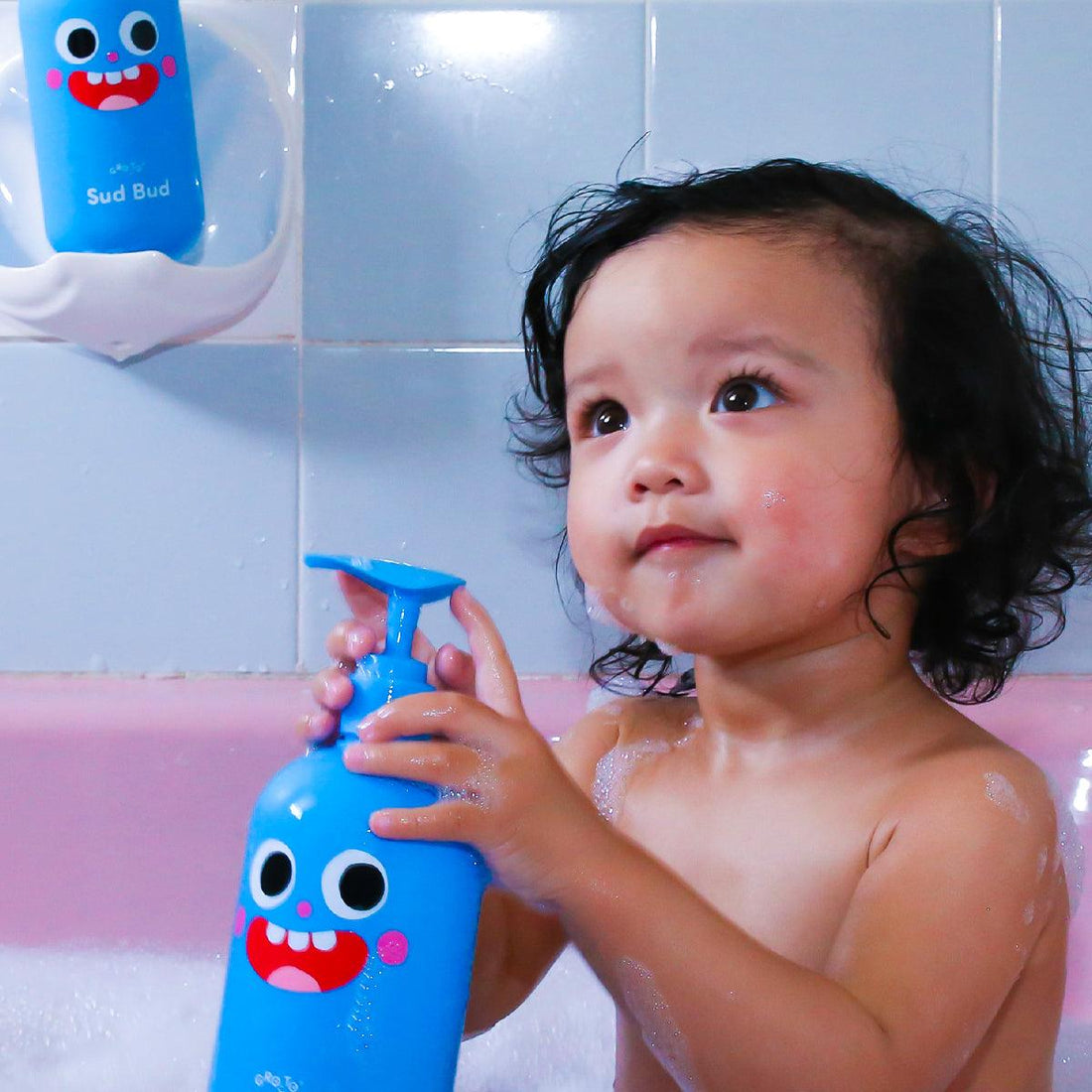Microbiome messers
All sorts of things can have an impact on the development and balance of a baby’s skin microbiome, from dry weather, to medications to the skincare products that you use. “Skincare often contains unfriendly ingredients and allergens that strip the skin microbiome and disrupt the good bacteria which then allows bad bacteria and irritants to have a party,” says Keymer. “Skin conditions like eczema are often a sign that the skin microbiome is unbalanced and once the balance of microbiome is disrupted, it can be easy for a skin condition to snowball.”
Baby’s first skin regime
Often it’s a few days before the baby's first bath, (a move that has a heap of benefits including to protect them from infection), but once you do, go lightly. “Newborn skin is soft and sensitive so it’s important not to overdo it on bath time,” says Keymer. Use lukewarm water, keep it short (three to five minutes) and consider adding some bath oil to minimise the drying effects of the water. Immediately after, while their skin is still wet, apply a suitable moisturiser to nourish their skin, then dry them by patting, not rubbing, “This minimises damage to the skin barrier.” When it comes to choosing the products, “Bunjie has been developed specifically to support the baby’s skin and its protective microbiome from day one.”
Hydration station
A baby’s skin is 3-5 times thinner than adult skin and loses water 5 times faster. “Research shows that regular moisturisation of baby's skin with clean (no nasties, junk-free) moisture lotion is super important,” says Keymer. “If we take good care of the skin barrier as early as three weeks, it can reduce the risk of developing eczema and skin allergies by 50 percent!”
Outside protection
Kids need some sun to produce vitamin D which is important for making strong bones and muscles, but this can be as little as a few minutes a day, for the vast majority of the time, children need to be protected from the sun. Sunburn, skin damage, eye damage, skin cancer and a weakened immune system can all be caused by too much sun. Sunscreen isn’t recommended for babies under six months, so keeping out of the sun, and in shade, is the best way to protect them. Beyond six months, clean, natural or sunscreen designed for sensitive skin types are best. Apply liberally (most people don’t use enough), 20 minutes before you go outside, and every 2 hours after. Then hats, sunglasses, protective clothing, and look for the shady spots.































